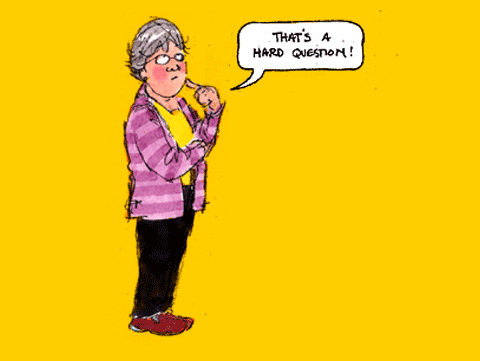I write about what grabs me emotionally and what fascinates me — the same kinds of things that I think children wonder about — topics such as: attachment, love, joy, anger, fear, separation, loss, growing up, gender, and healthy sexuality. These are difficult subjects, but they are the stuff of life I find intriguing. These are topics adult literature deals with, so why not children’s literature?
That’s why in my picture books I try to tell a good story, and through the telling of a story I try to help young children understand that the strong and powerful feelings they have are perfectly normal and perfectly healthy.I’m also interested in figuring out how to get information to children and teens that can help them to stay physically and emotionally healthy. A good story or a picture book and nonfiction book, if done well and with honesty, can strike a responsive chord in children and hopefully interest them as well as help them better understand themselves and the world they live in.
I’m quite sure a lot in my books comes from my own childhood, but the books also come from being a mother and a grandmother. And they also come from my adult life and the world I see around me and the daily observations and experiences I have. All of this feeds into my writing.
No. I find writing very hard to do, and I feel it’s especially hard to do well. I’m never completely satisfied with what I’ve done. But I love the challenge of figuring out how to make a book work for a child.
Lonely? Yes and no. At times it feels lonely because you write alone and have to figure out how to make a book work on your own. That’s a writer’s responsibility. But I talk with family, friends and my editors endlessly, and I consult with experts quite often about my work, asking questions and asking their opinions, although I don’t always listen to everything everyone tells me. This talking and consulting makes me feel part of a community, and all are generous with their wisdom, time and expertise.
I can’t draw for beans! Never could and probably never will. And besides, I get to work with such extraordinary illustrators who have new ideas that make my writing and my books better!
Yes and no. All of my books contain my values. It’s almost impossible, at least for me, to write anything that does not reflect my beliefs. I try not to preach, but rather to tell a story or to give accurate and honest information.
I would never expect everyone to agree with everything I write or say in my books. However, in a democracy, everyone has the right to express his or her thoughts and opinions. If someone disagrees with me or with what I’ve written, or does not want to read any book I have written, that’s fine with me, and I respect that person’s right to do so.
I feel that in a democracy every individual should have the right to choose and the freedom to read what he or she wants to read — and for me as a writer, and for all writers, to write what we choose to write.
First, I talk to every expert I can to make sure my information and my science is as up-to-date and as accurate as possible. Then, I ask them to read what I have written. But sometimes the experts disagree. Science is not always perfect and scientists do not always agree. That’s when as a writer I need to make a judgment on which piece of information to include or whether to include two points of view and say in the text… “scientists disagree…” or “people may disagree.”
When I start, I know what the book will be about, but I rarely know what the ending will be. And I usually have no idea what the progression of my picture books will be until I write the opening pages. It’s one of the great pleasures of writing fiction. Often, where the book goes and the ending surprises me.
The things I write about — attachment, separation, loss and growing up — are issues that all begin in childhood, even in infancy, and are with us throughout our lives. I do try my hardest, though, to write from a “child’s-eye view” or to write with the mandate “What’s in the best interests of the child?” That means being honest in your writing — portraying children’s — even young children’s — real emotions.
Some of the things I write about happened to me in childhood. Others happened to people I know or have read about. Since I find infancy, childhood and adolescence so fascinating, that fascination helps me to write about babies, children and teens. And some things, in my fiction, I make up.
This is a hard question to answer. I’m a slow writer, and it takes me a long time, sometimes even two or three years from the first time an idea pops into my brain until a book is completed. IT’S PERFECTLY NORMAL took almost five years from start to finish. Some of the picture books I write, such as I AM NOT GOING TO SCHOOL TODAY!, took about a year.

grownups frequently ask me about writing. Write
a letter or send an email to my publishers if you
have other questions about my books or me.




